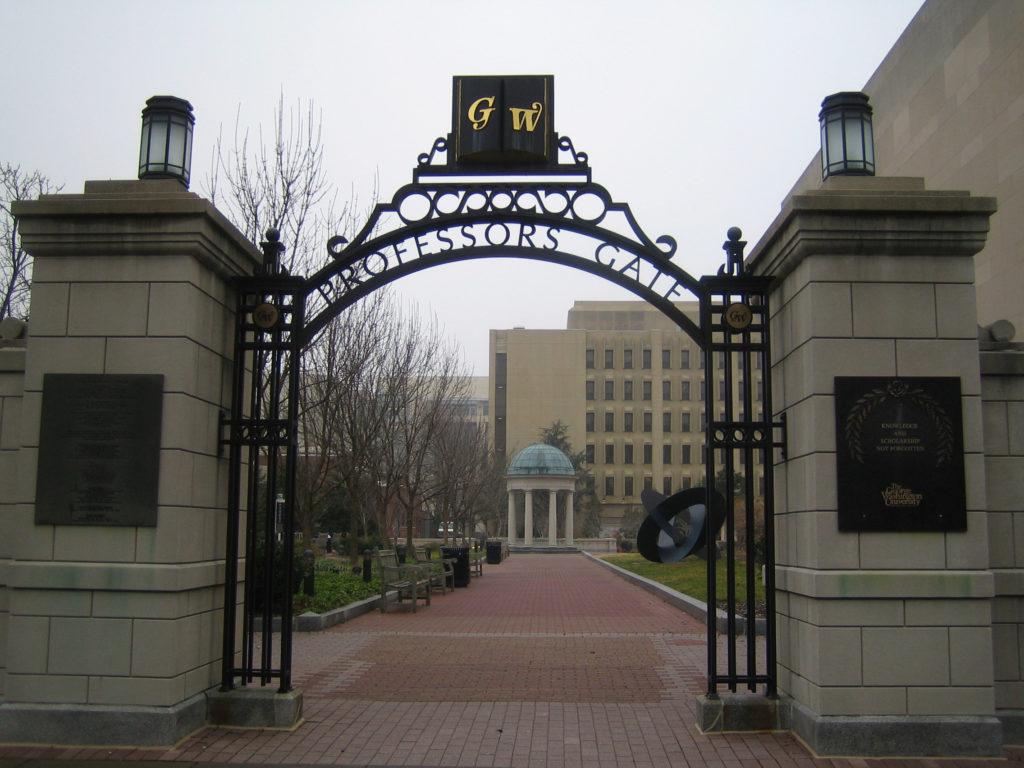A parent is suing the University for a refund of tuition, fees and room and board payments for the spring semester in light of the switch to online classes.
In a 22-page class-action complaint filed in the D.C. District Court Friday, Mark Shaffer – a parent of a female student – alleges the University breached its contract with students by not providing in-person education and campus facilities during the instructional continuity period. Shaffer is demanding the University provide a partial refund to his daughter and all other students who paid for “tuition, fees and/or room and board” in the spring semester.
“Despite sending students home and closing its campuses, Defendant continues to charge for tuition and fees as if nothing has changed, continuing to reap the financial benefit of millions of dollars from students,” the complaint states.
The plaintiff’s daughter has noticed a dropoff in “academic rigor” since the virtual learning period began, according to the lawsuit. The lawsuit states that the cancelation of student organization activities and suspension of access to “vital” library tools only available on campus have added to the University’s failure to provide services that students should expect to receive.
The complaint states that the switch to online courses has led to “back loading of work” and delayed deadlines, increasing difficulty for students trying to communicate with faculty and staff.
“While Plaintiff paid GW for an in-class experience that would enable his daughter to communicate directly with her professors, attend office hours and work through issues in person, such experiences are non-existent following Defendant’s campus closure,” the complaint states.
The lawsuit alleges the University collected tuition payments from students and families despite understanding the payments were involuntary, “unjust and inequitable.”
“Defendant wrongfully exercised control over and/or intentionally interfered with the rights of Plaintiff and members of the Class by effectively closing its campus to in-person education and switching to an online-only format,” the complaint states.
The lawsuit states that the University has neglected to consider how layoffs and furloughs are affecting family incomes and has “financially damaged” students and families. The lawsuit states that GW needs to follow in the footsteps of other universities that have offered more extensive refunds to students.
“While some colleges and universities have promised appropriate and/or proportional refunds, Defendant excludes itself from such other institutions treating students fairly, equitably and as required by the law,” the complaint states.
Shaffer is requesting a trial by jury, according to the lawsuit.
University spokeswoman Crystal Nosal said officials have not yet been served a lawsuit related to the repayment of tuition but are aware one has been filed.
She said faculty and staff have “worked hard” to provide students with a “quality academic experience” and “provide mechanisms” for students to engage with each other.
“GW knows this is not how our students expected to complete their classes this spring,” Nosal said in an email. “While our classes usually meet in person, sometimes they do not. And in these extraordinary circumstances, they cannot.”
She said the University has followed public health experts’ recommendations for safety measures in transitioning to online classes.
Nosal said officials have applied credit to students’ accounts for housing costs from March 20 to the end of the semester, which students can have refunded or apply for future housing. She added that students can request reimbursements for dining plan funds and parking permits for the number of days the virtual learning period lasts.
She said officials have reimbursed students for international program fees and the cost of international travel.
“We continue to work with students and families who are in financial distress due to the coronavirus pandemic,” she said. “The GW Cares Student Assistance Fund provides critical support to GW students in need as a result of unexpected financial hardship, including needs resulting from COVID-19 prevention and response.”
More than 2,000 students have signed an online petition posted in March demanding officials refund half of students’ tuition for online classes.
The complaint comes amid a wave of student lawsuits filed against universities nationwide demanding spring semester refunds because of the pandemic’s effect on holding classes.






